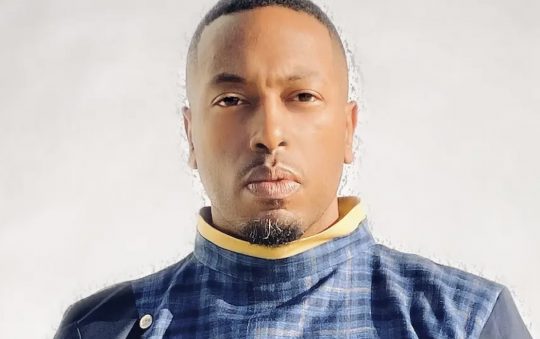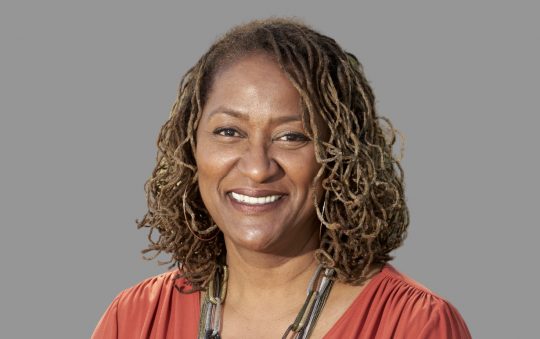
We are again on the battlefield of health and well-being for our people confronted with a vicious virus that is ravaging our communities at higher rates than others with the possible exception of Native Americans. And as with the AIDS virus, we are confronted with a life and death situation and must choose how we move together to save and sustain ourselves as persons and a people. The situation again calls to mind the challenge before us with HIV/AIDS, again a personal and collective challenge for which we of Us posed a stark and clear choice of choosing between life and death and acting accordingly. And choosing the vaccine is choosing life, and rejecting the vaccine, as the daily data shows us, means not only serious illness and hospitalization, but too often death and in greater numbers than others.
Again, as then, in combatting COVID-19, I raise the lesson and narrative of Pharaoh Piankhi, who asked the people in the midst of war to choose life over death, peace over war and slaughter. He said to them. “Two ways are before; you may choose as you wish. Open up and you will live, close down and you will die.” Moreover, he said to the people, “Do not lock the gates of your life. Do not desire death and reject life. And I will make a covenant of life with you before the whole land.” And so, it is with us. We must make a covenant with each other to choose life and reject death for self-protection and well-being and against self-injury, communal harm, and debilitating illness and death.
Thus, there are lessons to learn, apply and practice in this narrative and call to choose life and reject death as we combat COVID-19 in our communities. And the challenge in choosing life is to avoid the closed mind and constricted heart, the refusal to reason rightly and to feel deeply about our lives and the lives of our loved ones, family members and friends, associates, colleagues and co-workers, neighbors and those near us for numerous reasons. For if we righteously and rightly listen, we can hear the teachings of the ancestors that tell us: “There are two ways before us, life and death. Open up, we live; close down, we die.” Again, we must open our minds and hearts, reject the easy and available and simple but wrong and death-dealing answer, and feel deeply the need for us to live healthy lives, enjoy the good of each other’s presence and pursue our aspirations fully.
It is an established fact that 99% of the people being infected by the Delta variant of COVID-19 are the unvaccinated and our people are greatly disproportionately numbered among them. People are beginning to rightly point to the unvaccinated as those not only driving up the number of infections, but also putting others at risk, and creating a viral-laden context that makes it more difficult to return to even a semblance of our lives before COVID. And it’s only a matter of time before racist attention is turned to us as the major source of this problem, even though we know it is driven mostly by White anti-vaxxers, conspiracy addicts and cultic Trumpites.
Although usually a distinction is made between vaccine receptiveness and vaccine hesitancy, there is actually a third category of response to the vaccines – vaccine rejection. For it is not just hesitancy in which people are reluctant, but open to consider and perhaps eventually accept, but also a position of firm rejection of it with no intention of reconsideration. Indeed, there is in this position, not only refusal, but also advocacy against the vaccine for others also. And this poses an even greater danger to our communities than hesitancy, i.e., delays. For it means a permanent position of vulnerability to those who assume this stance but also increased vulnerability to the community as a whole. In a word, it is a closing down that must and will lead to greater numbers of debilitating illnesses, hospitalizations and deaths.
And if we close down in such a manner, refusing to reason beyond or in addition to our hardline rejectionist position, how do we talk of Black lives matter and the sacredness of Black lives and Black people? And what does it mean or matter that White people are compelled to recognize and concede, in word and practice, that Black life and lives matter, if we demonstrate in our thinking, feelings, speech, choices and actions that our lives mean or matter less to us? Surely, every principle must become a practice, if it is to be real and relevant in the daily lives and lived-experiences of our lives and the lives of our people as a whole.
Certainly, we should not try to simply shame or name-call or dismiss out of hand and denounce those among us who take the position of vaccine rejection. We are morally obligated to say what we think is wrong, but we must do it in a fraternal and sororal, a brotherly and sisterly, way. This means talking and reasoning with them, sharing with them our vaccination narrative and reasoning, why it’s important, and how it saved our lives rather than took it or disabled it.
It means also realizing and recognizing the complex set of reasons Black people are both vaccine hesitant and vaccine rejectionistic. There are several reasons that need to be recognized and dealt with in our conversation about the value of the vaccine and the problems not taking it causes, not only for them, but also for us all. These include: 1) a history of oppression and resultant healthy suspicions about the intentions of White people and the government in any project of health or otherwise concerning us; 2) an act of resistance against oppression, government mandate and pharma’s money grabbing and gouging at the cost of people’s lives and health; 3) the context in America, in which conservative religious leaders, legislators, news media, and social media have constructed a vast caldron of witches and warlocks brew of conspiracy, distrust, insecurities, and uncertainty that has affected many of us also; 4) the developed conception of health and healthiness linked to herbal medicines, home remedies, diet adequacy, etc. as an alternative to other forms of medicine; and 5) inadequate outreach and access in culturally grounded, effective and extensive ways.
There is at this point in this battle for our health, safety and general good where one of our greatest concerns is that we not find ourselves being disabled and dying from self-inflicted harm. It would be a great, grievous and ironic tragedy if history recorded that we as a people who prevailed against all the savage oppression imposed on us, succumbed from a self-inflicted harm and heedlessness. It is the sacred teachings of our ancestors that we are as Nana Howard Thurman tells us, storm riders – those who “ride the storm and remain intact.” We are, Nana Gwen Brooks tells us, resisters of whirlwinds – those who “conduct (their) blooming in the noise and whip of the whirlwind.” And Nana Nannie Burroughs tells us, we are performers of the impossible, those who “specialize in the wholly impossible.”
And yet, after all the storm riding, blooming even in the whirlwind and specializing in the wholly impossible, what if we are not undone by the storms, whirlwinds and impossibilities of history, but by our own self-inflicted harm? As Nana Malcolm taught us, we are often greatly unjust to ourselves, especially he says, when we fail to appreciate and honor the divine endowment of dignity within us, the special transcendent, equal and inalienable worthiness inherent in us. And here in this case of combatting COVID-19 within our community, we must remember this teaching and strive hard to discern its wisdom and apply it to the way we understand, value and live our lives, preserve our lives and advance our lives in the interests of personal, communal and human good and the well-being of the world.
Dr. Maulana Karenga, Professor and Chair of Africana Studies, California State University-Long Beach; Executive Director, African American Cultural Center (Us); Creator of Kwanzaa; and author of Kwanzaa: A Celebration of Family, Community and Culture and Essays on Struggle: Position and Analysis, www.AfricanAmericanCulturalCenter-LA.org; www.OfficialKwanzaaWebsite.org; www.MaulanaKarenga.org.





